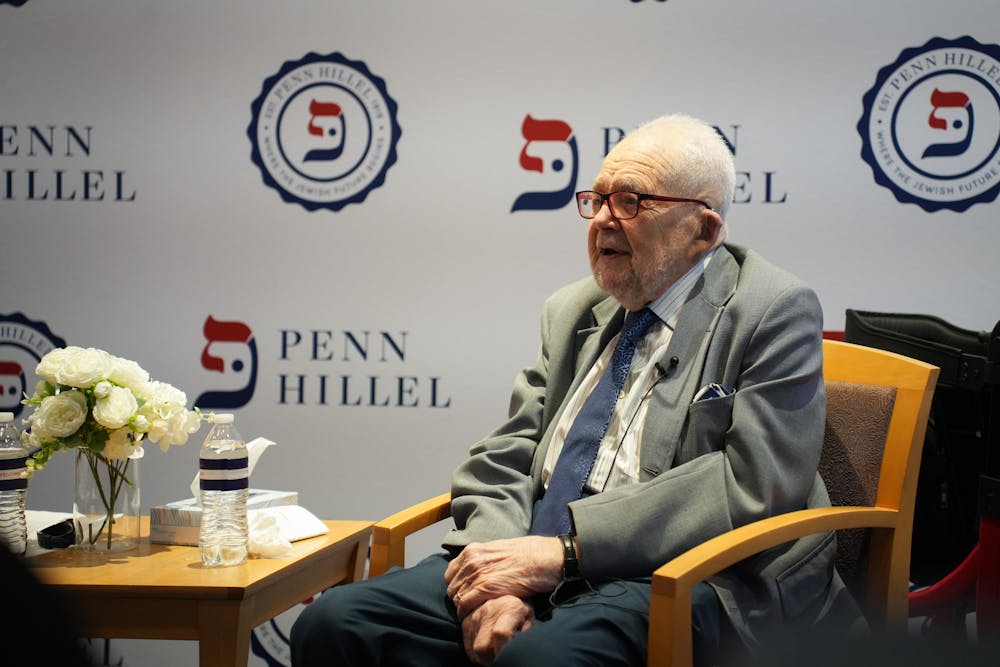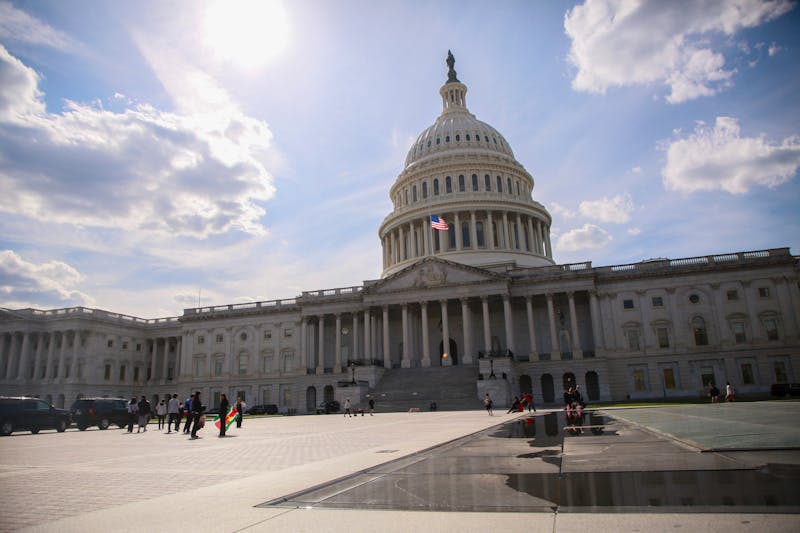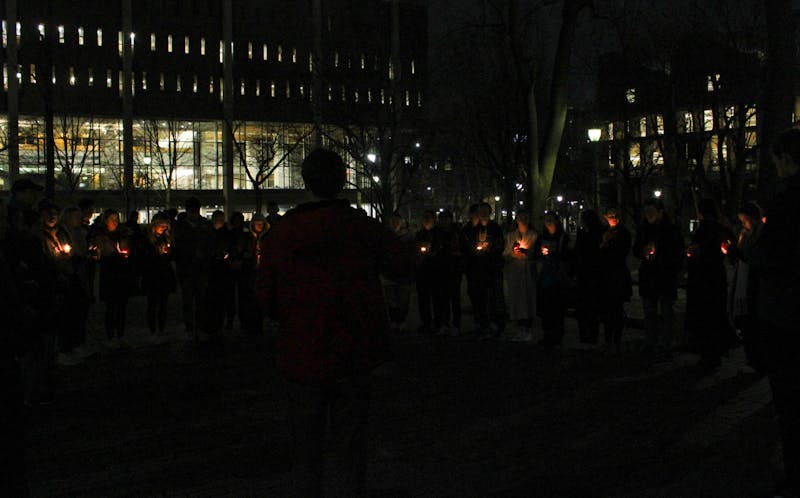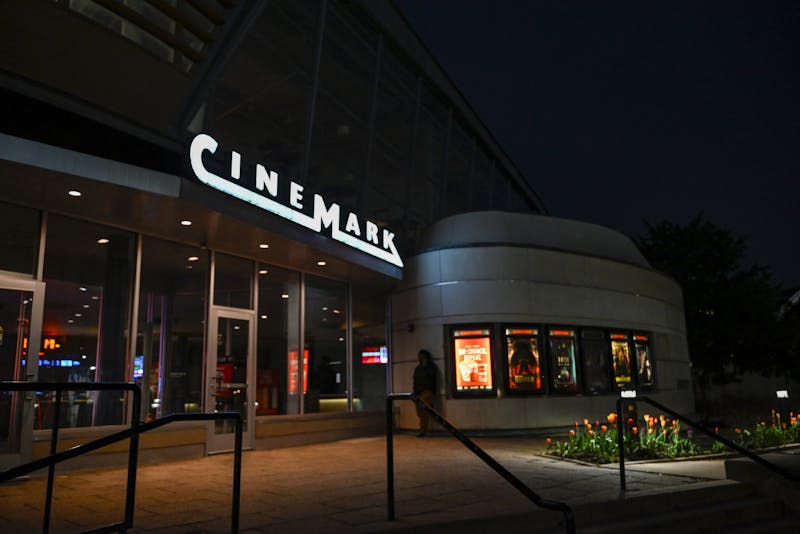
Penn Hillel hosted 1949 College graduate and Holocaust survivor Michael Katz on April 23 for a Holocaust Remembrance Day event.
Katz spoke about his escape from the Janowska concentration camp and his time fighting in the Polish underground resistance during the Warsaw Uprising. The conversation, moderated by College senior Ethan Burian, concluded with a memorial candle-lighting ceremony and a group prayer.
Katz was born in Lviv, Poland — in what is now Ukraine — in 1928. His family moved to Warsaw when he was 10, where he remained until the start of World War II in 1939. He recalled accompanying his father to a train station the day before the German invasion of Poland, where his father took a train back to Lviv.
“I never saw him again,” Katz said. “That was a major tragedy of my luck.”
Katz also shared how life in occupied Warsaw became progressively more restrictive for Jews, culminating in a mass deportation of Warsaw Jews to concentration camps in 1942. When Katz returned home from working one day, his mother and grandparents were missing.
“I was truly petrified,” he said. Detailing the moment of fear he experienced, he described "[realizing] you’re alone in the world" at fourteen years old.
“So I just stayed there and tried to think about it, and all of a sudden, I was hit by anger — anger that I had never felt before," Katz added.
Soon after, Katz and all the Jews who worked with him in a German army garage were sent to concentration camps. Katz was sent to the Janowska Camp, which would later become the first concentration camp to be converted into an extermination camp. In its early stages, the camp lacked an electric fence and had other security gaps, which allowed Katz to escape.
“Once the barracks were locked, the guards were reduced. So I realized that if I stayed outside the barracks, hidden, I would not be noticed,” he said.
One night, Katz remained outside the barracks undetected and used a shoehorn to dig through the wires at the bottom of the fence. He hid overnight in a nearby cemetery before finding non-Jewish friends of his mother, who helped him acquire identification papers to live under a false name.
Now free, Katz returned to Warsaw and joined the Polish underground resistance. In Warsaw, he witnessed the Warsaw ghetto uprising and fought in the later city-wide Warsaw Uprising of 1944. Katz served in the uprising as a “runner,” where he would carry messages and packages between members of the resistance.
“When I had no assignments, I would sit on the barricade with my rifle and shoot the Germans from a distance,” he said.
Katz came to the United States after the war at age 17 and enrolled at Penn to study zoology. He said that the organization that assisted his passage advised him against going to college and recommended pursuing a trade instead. He went to the admissions office himself and spoke to a dean, whom he convinced to admit him.
“After the immigration organization told me that this was not for me, I had a bachelor of arts degree from an Ivy League school three years after,” he said at the event.
He graduated with a degree in zoology — Penn did not yet offer a biology major, which Katz wanted to pursue — and later became a pediatrician.
Burian, whose grandfather survived the Auschwitz concentration camp, shared that moderating the event allowed him to help his generation “bear witness” to history and pass on the stories of Holocaust survivors.
“For someone to be able to see and hear from living survivors who can [talk about] maybe the darkest time in human history — it's powerful for people to learn the lessons of tolerance, of respect, of combating hatred, wherever it may be,” Burian told The Daily Pennsylvanian.
The Daily Pennsylvanian is an independent, student-run newspaper. Please consider making a donation to support the coverage that shapes the University. Your generosity ensures a future of strong journalism at Penn.
Donate












